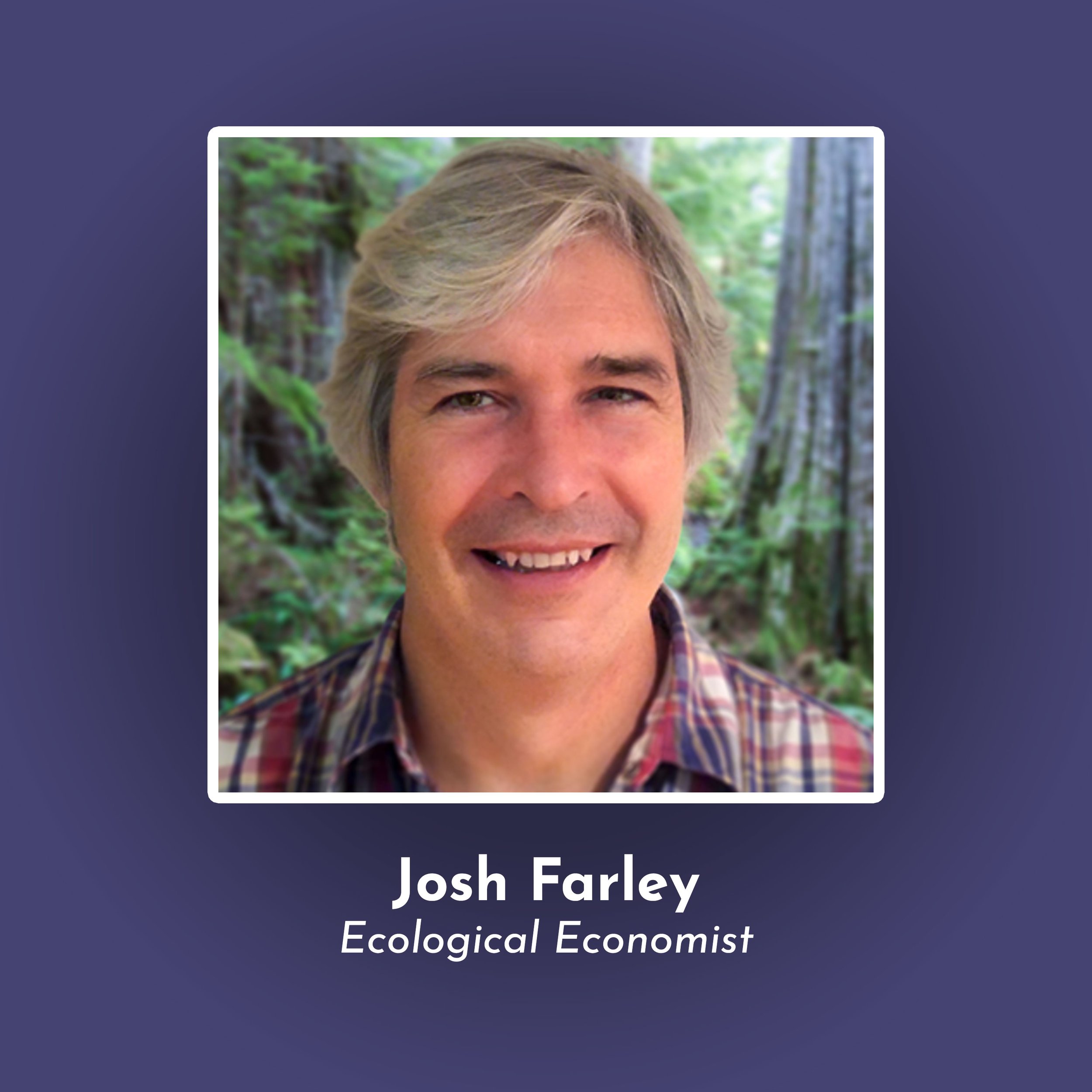Josh Farley: "The Past, Present, and Future of Human Cooperation"
Episode 07
February 16, 2022
(Conversation Recorded on January 26, 2022.)
On this episode we meet with ecological economist and Professor in Community Development & Applied Economics and Public Administration, Josh Farley.
Farley explores the importance of human cooperation in a modern superstructure that incentivizes competition. What role will cooperation play in helping us solve our largest existential problems?
Farley explains the critical social dilemma humans face: How can we grapple with the paradox that individuals are better served to act selfishly, but cooperation among individuals makes everyone better off?
Additionally, Professor Farley helps us distinguish the difference between how a system works, and how we can understand and participate in changing a system.
Show Notes & Links to Learn More
00:30 - Josh Farley bio + works
02:07 - Ecological economics
03:12 - Herman Daly
03:29 - Economics for the Future - Beyond the Superorganism
03:52 - Exponential growth is impossible on a finite planet
06:33 - We are born with prepared learning
07:05 - Homoeconomicus
07:50 - Studying economics changes attitudes
09:55 - Human problem solving is very plastic and malleable
10:27 - Large scale cooperation
11:05 - Inuit tribe and the compound bow
11:37 - ‘Just in time’ complex supply chain
12:49 - There isn’t an individual human that can survive outside culture
13:05 - Our systems are built on complexity and energy surplus
13:40 - Cooperation and competition work in tandem
14:36 - There’s no capitalist society without fossil carbon
15:50 - No industry would be profitable by including the externalities of fossil carbons
18:50 - CO2 impact of reducing speed limits
20:15 - Collective knowledge in evolution
20:54 - Variation of cooperation in human cultures
21:43 - Multi-level selection
22:06 - Darwin and collaborative vs selfish groups
24:17 - Jared Diamond - The World Until Yesterday
27:27 - Competition with another group unites in-groups tighter
27:48 - We are cooperating towards profits
28:22 - Ukraine and Russia current events
29:29 - The more extreme the shared belief, the tighter the group is
32:20 - Vaccine book chapter from 2015
33:22 - Even with alternative energy, our cultural goal for growth is a problem
34:40 - Keynes - We’re so rich we will only need to work 10 hours/week
35:18 - There are no technological solutions to a collective action problem
39:03 - Highly egalitarian ancestors
39:57 - Mariana Mazzucato iPhone example
42:47 - Flow: The Psychology of Optimal Experience by Mihaly Csikszentmihalyi
44:02 - Human interaction is a predictor of satisfaction
44:45 - How Are We
46:21 - Slime mold networks
48:33 - Percentage of GDP spent on marketing
50:10 - Social media use of polarization and algorithms for consumerism
51:35 - Knowledge commons
53:40 - The original goal of public universities
55:46 - Optimal Foraging Theory
55:27 - Steep discount rates
59:31 - The U.S. is the richest culture in the world and miserable
1:02:16 - Social media experiments
1:06:18 - Obligations of reciprocities
1:08:09 - Nassim Taleb Antifragile
1:09:57 - The market system dilutes reciprocity
1:11:08 - Supernormal stimuli
1:12:19 - Stern Review: 1% of GDP
